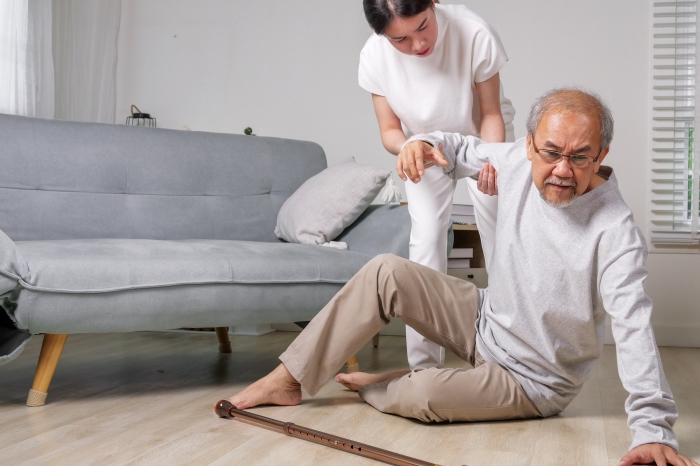
A slip and fall injury can have devastating consequences, and they happen more frequently than you might think. If you’ve suffered an injury from a fall, a personal injury attorney can help you receive the compensation you need and deserve.
A slip and fall injury can happen at any time. There are cases where someone falls at work, in a store or place of business, and on another person’s property.
If the fall is due to negligence or some fault of the property owner, your injury may be covered under a slip and fall lawsuit. In order to determine premises liability, a court would look for a few things.
First of all, you need to determine who the liable party is. In a case where the accident happens at someone’s home, often, the homeowner’s insurance would be liable if it was determined that the slip and fall could have been prevented.
For fall claims, a court would determine that there is a liability if the fall was the result of something wrong with the structure, such as a crack in the floor or sidewalk that could cause a fall.
They may also determine that the owner is liable if something was changed or done at the property where the owner should have reasonably foreseen a hazard.
For instance, if you’re mopping the floor without warning people that the floor is wet or if someone uses a cord or cable but doesn’t properly tape it down to prevent a tripping hazard.
You may also need to bring your own proof or documentation of your claim. This might include eye witness reports and any medical reports. You might also be able to get video footage from a nearby business or traffic camera for the time of the accident.
One of the most frequent questions people ask is about compensation. How are slip and fall cases valued? Is there an average amount that you can expect, or is it a case by case basis?
There are different factors involved in every slip and fall case. Some things your personal injury lawyer will ask about is the extent of the injury. You can be compensated for medical expenses and the time you miss from work.
There may also be other hardships that the court can award settlement for, which usually fall under the category of pain and suffering.
Medical bills and time off of work are fairly straightforward. Your lawyer can easily calculate these and provide an estimate.
Pain and suffering can be more difficult to determine. This may fluctuate depending on other cases in the area during the time frame. Other factors may come into play, as well.
For instance, if the property owner has been sued for similar liability before, it may work in your favor in a lawsuit.
There are a number of injuries you can sustain from a slip and fall accident. The type of injury might depend on the area and the height at which you fell.
For instance, falling from a height of several feet is often going to cause a more serious injury than a simple slip on a flat surface.
The most common types of injury include:
This may be the ankle, leg, or arm. It’s often the result of landing on the appendage, but any number of injuries can be sustained from the way you twist to attempt to break your fall or due to environmental factors.
Back injury or spinal cord injury can be very serious and irreparable. Depending on the severity, this may result in lifelong limitations, and for some people, it can mean surgeries and possible loss of wages.
In extreme cases, spinal cord injuries can mean paralysis and other obstacles that can severely hinder the quality of life.
Sprains are less severe but can result in medical bills and time off of work.
Like spinal cord injuries, head injuries can be quite severe. They may also cause issues which don’t appear immediately. A traumatic brain injury can have lifelong implications.
In most cases, a slip and fall case will settle out of court. What this means is that the liable party agrees to pay you an agreed-upon amount.
You can arrive at a settlement agreement and receive payment much faster than you would if you went through the entire trial process.
Your lawyer will discuss the pros and cons of taking a settlement. Court cases are never a guaranteed win, so a settlement can often be an excellent option because it means that you will receive some compensation for your injury.
However, some parties will try to reach a settlement agreement that’s far too low to be fair when considering the amount of pain or damage you have sustained.
Once you agree to a settlement, it means that you have agreed not to seek further damages from the liable party for that incident. In other words, you can’t go back to court to sue them again over the same injury.
This sounds straightforward, but some injuries take a long time to surface. Brain injuries, for instance, may not present with symptoms immediately. Spinal injuries, such as whiplash, may also get worse over time.
In all cases, it’s important that you see a physician and make sure that you know the extent of your injuries prior to reaching a final settlement amount. Some parties will decide to go to court.
This may depend on your lawyer or the insurance company. In some cases, an insurance company may offer a very low number that makes going to trial a much better option.
Your lawyer can help you find the best strategy to arrive at the highest possible settlement for your situation.